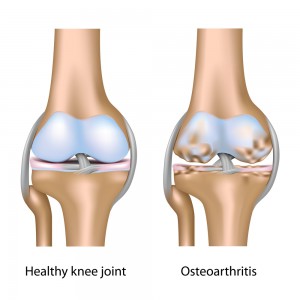According to the Bureau of Labor Statistics, tendonitis causes more than 70,000 people to miss work per year. This is just one of many reasons why it is important to understand the symptoms of tendonitis so that you can avoid not only the pain but the inconvenience it...
LATEST BLOGS
Husband and Wife of 54 Years Undergo Joint Replacement Surgeries On The Same Day
Premier Orthopaedics surgeon, Dr. Jonathan Garino, performed back-to-back procedures on a couple who have been married for 54 years! They shared their same-day surgery journey at the MUVE Center with @6ABC. Watch the incredible story below. Read the full ABC6 story...
What are Non-Surgical Treatment Options for a Herniated Disc
The spine consists of 26 bones called vertebrae and between them are cushion-like pads called “intervertebral discs”. The discs serve as shock absorbers for the vertebrae and help provide stability to the spine. When one of these intervertebral discs loses its normal...
Top 5 Questions to Ask on Your First Orthopaedic Visit

Your first visit to the orthopaedic doctor may happen any time of your life- a mishap in the playground can send your little one to an orthopaedic doctor, or perhaps old age forces a hip or knee replacement. Most commonly, general decline or bone health sends people in their middle ages to see an orthopaedic doctor. Osteoarthritis, osteoporosis and such conditions are rampant due to erratic lifestyle and diet. If it is your first visit be sure to ask these questions.
1. How can I keep my bones healthy and avoid orthopaedic problems?
If your visit happens to be a general checkup, be sure to ask this question. Bones consist of a lot of calcium. Your diet, especially in the bone growth years between 10 and 20, should consist of calcium rich foods. Your doctor would be better off at charting a calcium rich diet according to your current state of bone health. Ask as many questions as you can and clarify your doubts about your bone health. If you have had any injuries in the past or any bone problems that may have disappeared, mention them.
2. What causes osteoarthritis?
Over 21 million Americans are affected by this condition. It is a condition where the cartilage (present at the end of bones to act as a shock absorber) erodes away leading to swollen, sore and stiff joints. Ask the doctor what causes the symptoms and how you can avoid it. If you have already started showing initial symptoms of osteoarthritis, ask your orthopaedic how you can arrest the condition in the initial stages.
3. Do you have outcome information available to me?
If you have such an aggravated condition that requires surgery, this question is very important. Orthopaedic surgeons are usually attached to a surgery center and every center keeps a record of the outcomes like surgical results, patient satisfaction, length of hospitalizations and so on. Ask the center to share the outcomes if they have such a policy and compare these outcomes to see how the center measures up.
4. What is your incidence of short-term and long-term complications?
If a surgery is unavoidable, ask the surgeon about the incidence short-term and long-term complications in his patients. It is important that your surgeon’s previous patients have low incidence of these complications and always choose a surgeon who has performed a number of surgeries of the kind he is about to perform on you. Ask about the normal recovery period, but keep in mind that it differs from patient to patient depending on their age and fitness.
5. What are your qualifications?
Picking the right orthopaedic doctor is imperative when you have to eventually go for a surgery. Your surgeon may be highly qualified on paper but has little or no experience with the technique or surgical approach he wishes to take with you- this will make your surgery more risky. So be sure to choose a qualified doctor.
Apart from these, you can ask about the cost of the treatment and after-care program provided by the orthopaedic surgery center.


